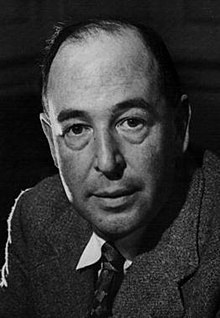
God's Goodness (8)
12.8K
The devil seeks to weaken our opinion of God's goodness.
Since God is an incorporeal and unchangeable living nature, remaining in eternal stability in his own self, he is entirely present in all things, and entirely in each of them. But those in whom he dwells receive him according to the diversity of their capacity, some more, some less, whom he builds into a temple most beloved to himself by the grace of his goodness.Epistola 187, c6 n19
The goodness of God, and his readiness to be gracious to every one that cometh to him, is the fountain of the saint's hope, strength and consolation.
We must believe that He is able to do what He will, wise to do what is best, and good, according to His promise, to do what is best for us, if we love Him, and serve Him.
O God, I have tasted Thy goodness, and it has both satisfied me and made me thirsty for more. I am painfully conscious of my need for further grace. I am ashamed of my lack of desire. O God, the Triune God, I want to want Thee; I long to be filled with longing; I thirst to be made more thirsty still. Show me Thy glory, I pray Thee, so that I may know Thee indeed. Begin in mercy a new work of love within me. Say to my soul, 'Rise up my love, my fair one, and come away.' Then give me grace to rise and follow Thee up from this misty lowland where I have wandered so long.
God is not involuntarily good, the way a fire is involuntarily hot. In him, goodness is voluntary... he does not do good by necessity, but by his own free choice.Stromateis 7.7
God's love is an exercise of His goodness towards individual sinners whereby, having identified Himself with their welfare, He has given His Son to be their Saviour, and now brings them to know and enjoy Him in a covenant relation Knowing God (The Love of God, 136)
Get notified when new 'God's Goodness' quotes come out?
Top Authors
1. Charles Spurgeon (133)
2. Thomas Watson (125)
3. J.C. Ryle (117)
4. John Calvin (104)
5. J.I. Packer (89)
6. John Piper (86)
7. George Swinnock (76)
8. A.W. Pink (68)
9. Louis Berkhof (63)
10. C.S. Lewis (59)
11. John Flavel (58)
12. B.B. Warfield (58)
13. Martyn Lloyd-Jones (56)
14. John Owen (54)
15. Gerald Bray (50)
16. Francis Schaeffer (49)
17. Thomas Brooks (47)
18. R.C. Sproul (46)
19. Matthew Henry (45)
20. Francis Turretin (43)
2. Thomas Watson (125)
3. J.C. Ryle (117)
4. John Calvin (104)
5. J.I. Packer (89)
6. John Piper (86)
7. George Swinnock (76)
8. A.W. Pink (68)
9. Louis Berkhof (63)
10. C.S. Lewis (59)
11. John Flavel (58)
12. B.B. Warfield (58)
13. Martyn Lloyd-Jones (56)
14. John Owen (54)
15. Gerald Bray (50)
16. Francis Schaeffer (49)
17. Thomas Brooks (47)
18. R.C. Sproul (46)
19. Matthew Henry (45)
20. Francis Turretin (43)
Top Topics
1. Sin (197)2. Scripture (133)
3. Prayer (131)
4. Preaching (115)
5. Faith (113)
6. Gospel (92)
7. Sabbath (84)
8. Suffering (79)
9. Salvation (73)
10. Church (71)
11. Law (61)
12. The Law (58)
13. Truth (52)
14. Justification (51)
15. Christ (50)
16. Love (46)
17. Grace (43)
18. Theology (43)
19. Creation (40)
20. Fear (37)
21. Holiness (37)
22. Heaven (35)
23. Sanctification (35)
24. Children (34)
25. Pride (34)
26. Ten Commandments (34)

